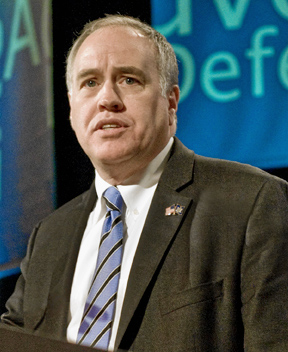Katrina Anderson, a senior policy analyst and director of government affairs for the Commonwealth Foundation, has published an op-ed in today’s Patriot-News urging Pennsylvania lawmakers to “reform the [pension] system now”.
Ms. Anderson explains her support for a solution similar to Gov. Corbett’s plan, which would move new hires into a 401(k)-style plan. An excerpt from the op-ed:
The first step lawmakers need to take is changing state-level retirement plans for themselves and new teachers and government workers. This would not erase our $50 billion pension debt, but it would prevent the problem from getting worse while protecting families from higher taxes and preserving the system.
Our current pension system has a huge flaw: It’s too easy to boost benefits when times are good and skip payments when they aren’t.
Moving new employees to a well-designed 401(k)-style plan would prevent deliberate underfunding and make “kicking the can down the road” impossible.
Reform would also benefit employees. As workers change jobs—an average of 10 times in a career—retirement portability and personal ownership of investments have never been more important. Such flexibility simply can’t be found in the current system.
But flexibility is the hallmark of 401(k)-style plans, which are also always fully funded—meaning they carry no debt—and offer predictable costs.
Not only has most of the private sector already left the old system behind—including the Wolf Organizaiton, founded by Democratic gubernatorial candidate Tom Wolf—but many states have as well. Since 1996, 18 states have converted to plans which build on the 401(k) model.
There are several bills in the General Assembly that would address this crisis for new employees, including plans that combine aspects of the current system and 401(k)s into what’s commonly called a hybrid plan, as well as reforms addressing the municipal pension crisis.
Conventional wisdom says lawmakers won’t do anything significant shortly before an election. But many statesmen in the legislature are fighting on behalf of retired teachers like Bill Frye to address this issue now.
They should understand—as property tax payers already do—that the stakes are too high to play politics and ignore real reform.
Anderson points out that pension costs have risen more than $600 per household since 2008—and are projected to rise another $550 per household in the next five years.
Read the entire column here.









